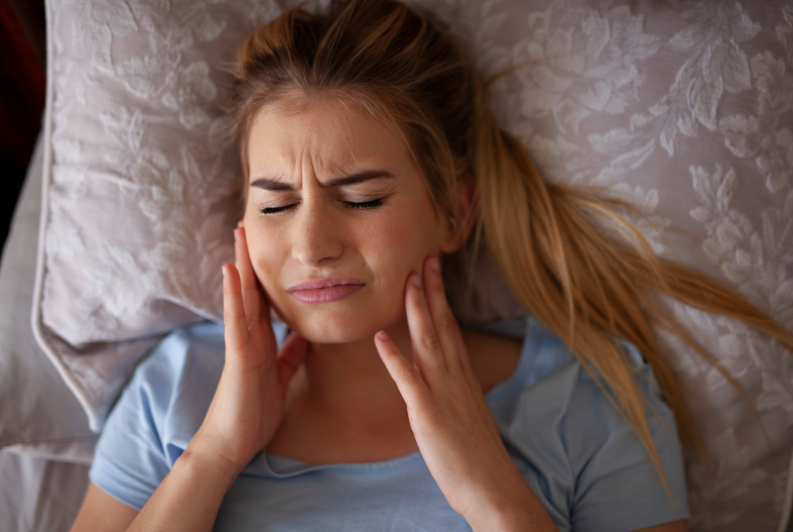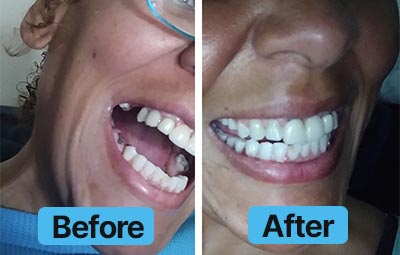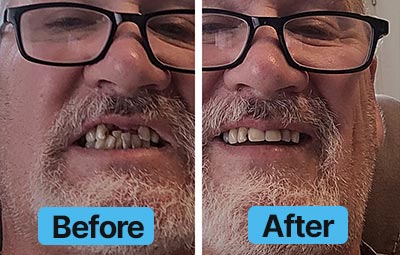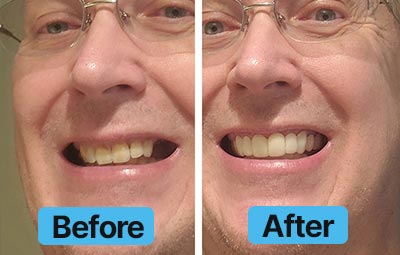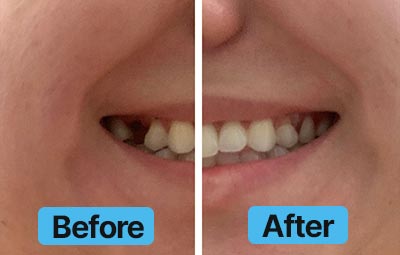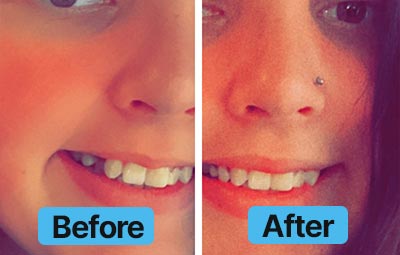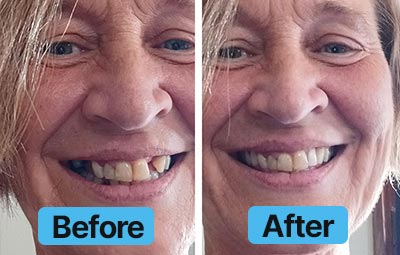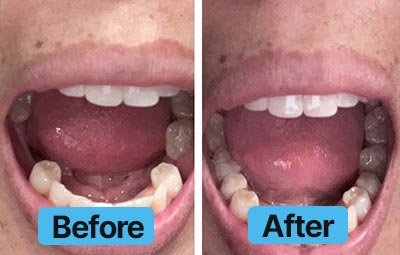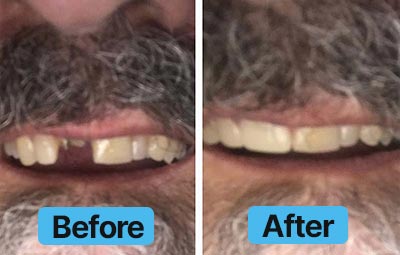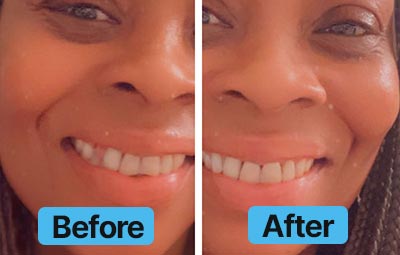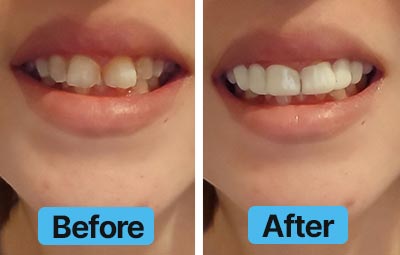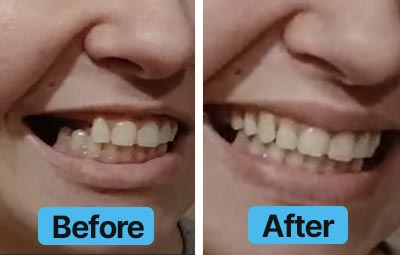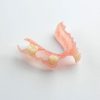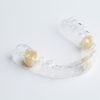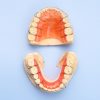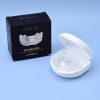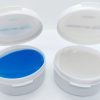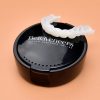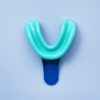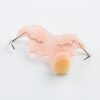If you wake up with a sore neck and jaw every morning, then you might be suffering from bruxism. Bruxism, or teeth grinding, is a condition that commonly occurs during sleep and affects the health of your teeth, jaw, and neck. Although bruxism often causes mild symptoms and is typically easy to treat, if left untreated bruxism may result in permanent damage and complications down the line.
The good news is that there are many different treatments available for bruxism. We’ve compiled a list of some of the most common treatments and the benefits each one has to offer.
How Do I Know I Have Bruxism?
Since many people experience bruxism while they are asleep, it can be difficult to diagnose. Unless you have a sleeping partner who complains about your grinding and clicking teeth, you may be oblivious to your condition.
In order to identify bruxism more accurately, it’s important to make regular visits to your dentist to assess the general health of your teeth. Your dentist will be able to spot signs of bruxism long before you’re aware of the impact on your teeth, so you can rest assured that your teeth are being well looked after.
Some common symptoms of bruxism include:
- Soreness in the neck, temples, and shoulders from clenching.
- Soreness in the jaw area.
- Sensitive teeth.
- Cracked, chipped, or damaged teeth.
If you are experiencing any of these symptoms, we recommend visiting your dentist to get things checked out as soon as possible. Being proactive is one of the best ways to prevent bruxism from worsening over time.
Home Remedies to Ease Symptoms
If you’re in discomfort but can’t seek long-term treatment right away, there are several home remedies that may help alleviate bruxism symptoms.
OTC Pain Relievers – For temporary relief from soreness caused by grinding, try an over-the-counter pain reliever like acetaminophen or ibuprofen.
Cold or Hot Compress – Soreness in the jaw may be soothed by applying a cold or hot compress to the tender area. A hot water bottle or microwaveable beanbag are also excellent options.
Epsom Salt Baths – A soak in a warm bath with Epsom salts may relieve muscle tightness in the shoulders and neck caused by grinding.
Massage – Gentle, self-massage reduces discomfort and restores mobility in the jaw. Focus on the point of connection between the upper and lower jaw, and gently rub the muscles while slowly opening and shutting your mouth.
Treatment Options
Depending on the severity of the bruxism, your dentist might recommend a specific treatment suited to address your symptoms. Bruxism treatments vary in cost and the immediacy of results, so there are several factors to consider when making your choice.
Lifestyle Changes – While there’s no single cause for bruxism, certain habits increase the likelihood of developing bruxism and experiencing severe discomfort. Smoking tobacco products, drinking alcohol, and ingesting large amounts of caffeine are all associated with increased teeth grinding. Cutting these habits out of your lifestyle may help minimize grinding and improve the quality of your sleep.
Stress Management – Severe bruxism is often linked to stress and anxiety. It goes without saying that life is stressful! From job responsibilities to the global pandemic to family commitments, most people are juggling multiple stressful elements at once, and this has resulted in an uptick in bruxism-related complications and symptoms.
Managing stress and anxiety starts with a sustainable self-care routine. Exercising, eating well, and prioritizing a healthy sleep schedule are all part of a holistic approach to minimizing stress. In addition to practicing healthy lifestyle choices, you can address anxiety by seeing a therapist. Depending on the circumstances, your doctor or psychiatrist may prescribe medication for anxiety.
Muscle Relaxants – Although structural treatments like mouth guards are typically the most effective methods for treating bruxism, your doctor might prescribe a muscle relaxant to address tight jaw muscles. Muscle relaxants help loosen jaw, neck, and shoulder stiffness and alleviate general tension in the body. Muscle relaxants work well when paired with other treatments, and are typically inexpensive if the prescription is covered by your insurance.
Mouth guards – Mouth guards are probably the most common, and most effective, treatment for bruxism. Wearing a bite guard at night serves a twofold purpose. First, a mouth guard protects your teeth from wear and tear caused by clenching and grinding, and second, wearing a mouth guard cushions your jaw, minimizing pain and tenderness.
There are several types of mouthguards to choose from depending on your budget and the severity of your grinding:
- Boil and Bite: found at your local pharmacy, boil and bite mouthguards are a fantastic temporary solution for grinders. As the name suggests, boil and bite guards are softened in hot water before you bite into them to make an impression on your teeth. Although they are inexpensive (usually around $25) you will have to replace them more often since they aren’t as durable as other options.
- Soft Nightguard: For less extreme grinders, a custom-made soft nightguard is an effective solution for treating bruxism. Soft nightguards are typically more comfortable than harder options, but may not last as long and aren’t suitable for severe teeth grinders. Soft nightguards are usually available for around $120.
- Hard Nightguards: Hard nightguards are the best option when it comes to treating severe bruxism. Built to provide long-lasting protection, hard night guards are suitable for even the most intense grinders. Custom hard night guards are a bit more expensive, typically starting around $150, however, the price is offset since these guards last for years.
Dental Correction – In the most extreme cases you may need to undergo dental correction due to damage caused by bruxism. Your dentist will reshape damaged teeth to mitigate complications and may put crowns or caps on teeth with cracks. Dental correction isn’t a common outcome, but it can be very expensive and require multiple trips to the dentist’s office. Depending on your insurance status and the extent of the damage, dental correction can range from hundreds to thousands of dollars.
Managing Your Bruxism with Dental Lab Direct
Instead of visiting your dentist for an overpriced mouth guard, consider ordering a custom-made bite guard from the comfort of your home. At Dental Lab Direct, our custom mouthguards are designed with efficacy and comfort in mind and are made from high-quality FDA-approved materials.
Dental Lab Direct’s three-step ordering process makes placing an order hassle-free. Once you’ve received your impression kit in the mail all you need to do is make an impression of your teeth, mail the package back to us (at no additional cost), and wait 2-3 weeks for your custom mouth guard to arrive. Treating bruxism doesn’t need to be complicated or expensive, and at DLD we’re committed to making your mouthguard the perfect fit.
 60 DAY warranty on all custom-made products | 1,000+ 5 Star ★★★★★ Reviews
60 DAY warranty on all custom-made products | 1,000+ 5 Star ★★★★★ Reviews